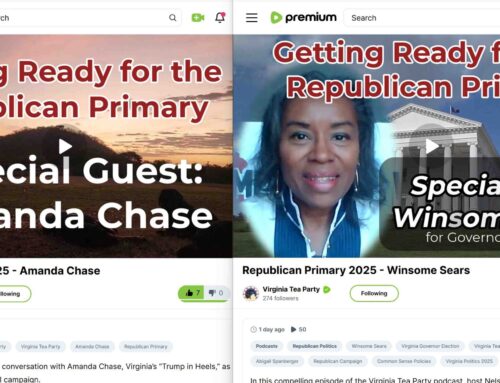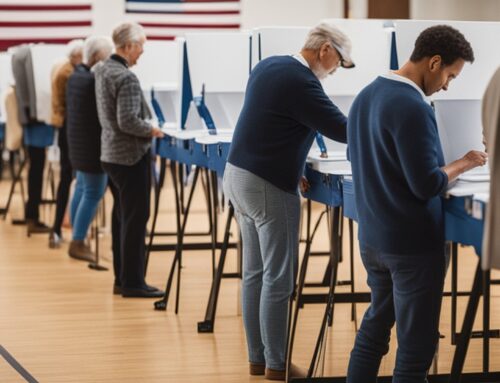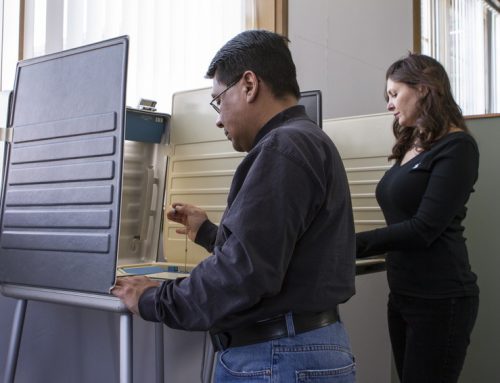The focus of the 2010 election five days from now has been on Congress, but Virginians will also be faced with voting on three proposed amendments to Virginia’s constitution (click here for details from the Virginia Board of Elections). The Richmond Tea Party leadership recommends you vote NO on questions #1 and #2. Both delve into the dangerous territory of picking winners and losers in the tax system—the very approach that has ultimately given America tens of thousands of pages of an indecipherable tax code at the federal level, a major headache on April 15th (and just about every other day in trying to comply with the code), and countless citizens who feel disenfranchised by their government. At the state level, we should reject this same game politicians play to win political favor (and grow their power) by purchasing support from one group of citizens at the expense of another.
Radio host and Tea Party supporter Rob Schilling said this on his blog:
Questions 1 and 2 deal with real estate taxation. Helping veterans, disabled, and elderly people is a noble goal, as is tax reduction; the means by which the assistance will be granted, however, is insidious.
America’s founders recognized inherent peril in progressive taxation: a citizen exempt from paying taxes that his neighbor must pay, has no incentive in keeping the tax low because he, himself, does not pay the tax.
…
The disastrous results of nearly a century of progressive income taxation can be seen in present day America where 47% of U.S. households paid no federal income tax in 2009. Those paying no tax actually have a vested interest in seeing rates raised for federal income-taxpayers, in order to maintain their own tax-free status.
And friend of RTP, Jim Trautz, offers this from his perspective as a veteran:
As a retired naval officer, nobody supports our vets more, nor believes stronger than I, that they should be honored in every way possible. That said, it’s important to review the position that virtually every conservative candidate, at the local, state, and national level has taken – the idea of fiscal responsibility and limited government.
First, the federal government has already made provisions for our disabled veterans in the form of disability pay and benefits, not to mention the benefits received through the Department of Veteran Affairs. Additionally, there are also a myriad of PRIVATE groups, who offer additional benefits – groups like the VFW, American Legion, Fleet Reserve Association, AMVETS, Wounded Warriors, etc. All of these groups are willing and able to help. In fact, the genesis for many of these groups was care for our disabled vets. The same holds true for other groups that would be affected by this amendment.
Secondly, it is not now, nor should it ever be the responsibility of government – at any level, whether at the state or national level to use taxpayer money to benefit a segregated group. As a matter of fiscal responsibility, I find it hard to swallow that certain groups (no matter how honorable they are) should be given tax breaks that others aren’t afforded – especially in light of these days of out of control spending and deficits. Though supportive of our veterans, it’s hardly fiscally responsible to reduce revenues at the expense of taxpayers – especially in light of the benefits already available through both the federal government and private groups. In short, I’m not in favor of rewarding certain groups for votes. That may be okay for liberals and progressives, but I’m a firm believer that to some extent, that type of thinking is exactly what has led to the problems we face today.
Third, I am curious as to where we draw the line? Today we give tax breaks to the disabled vets; why not give tax breaks to disabled police officers, firemen, government service workers, or even government contractors? They all serve our communities and/or our country, and one could argue that all of them serve the public in one fashion or another. If you really want to stretch the spirit and intent of the amendment, one could argue that disabled construction workers, plumbers, electricians, and a host of other occupations serve the public, and as such, they too should be entitled. I know that this sounds ridiculous, but under equal protection, should this amendment pass, it sets the precedence for others to follow suit. The truth is, if/when this amendment is passed, it’s only a matter of time before the law is tested (and most assuredly it WILL be tested).
In closing, please understand that I’ve given this a great deal of thought. This proposed amendment is not only contrary to the ideals of fiscal responsibility, limited government, and equal protection, but it stands in direct opposition to everything conservatives have been professing. My position is not in opposition to honoring our disabled veterans, or of any of the groups that would benefit, but rather, in favor of conservative values and common sense.




